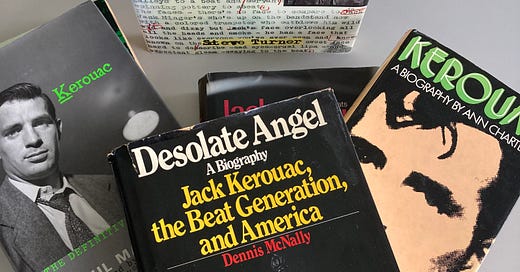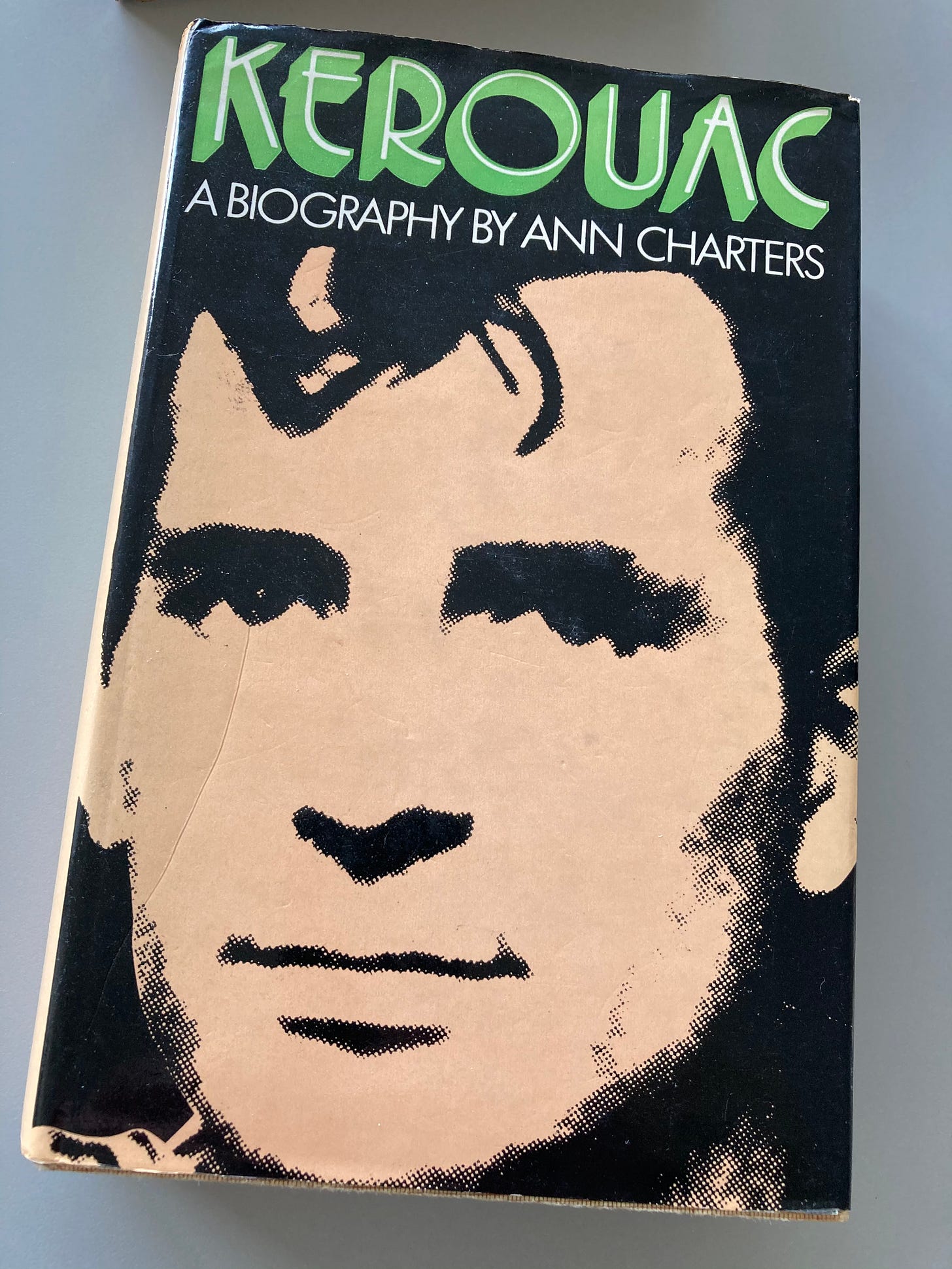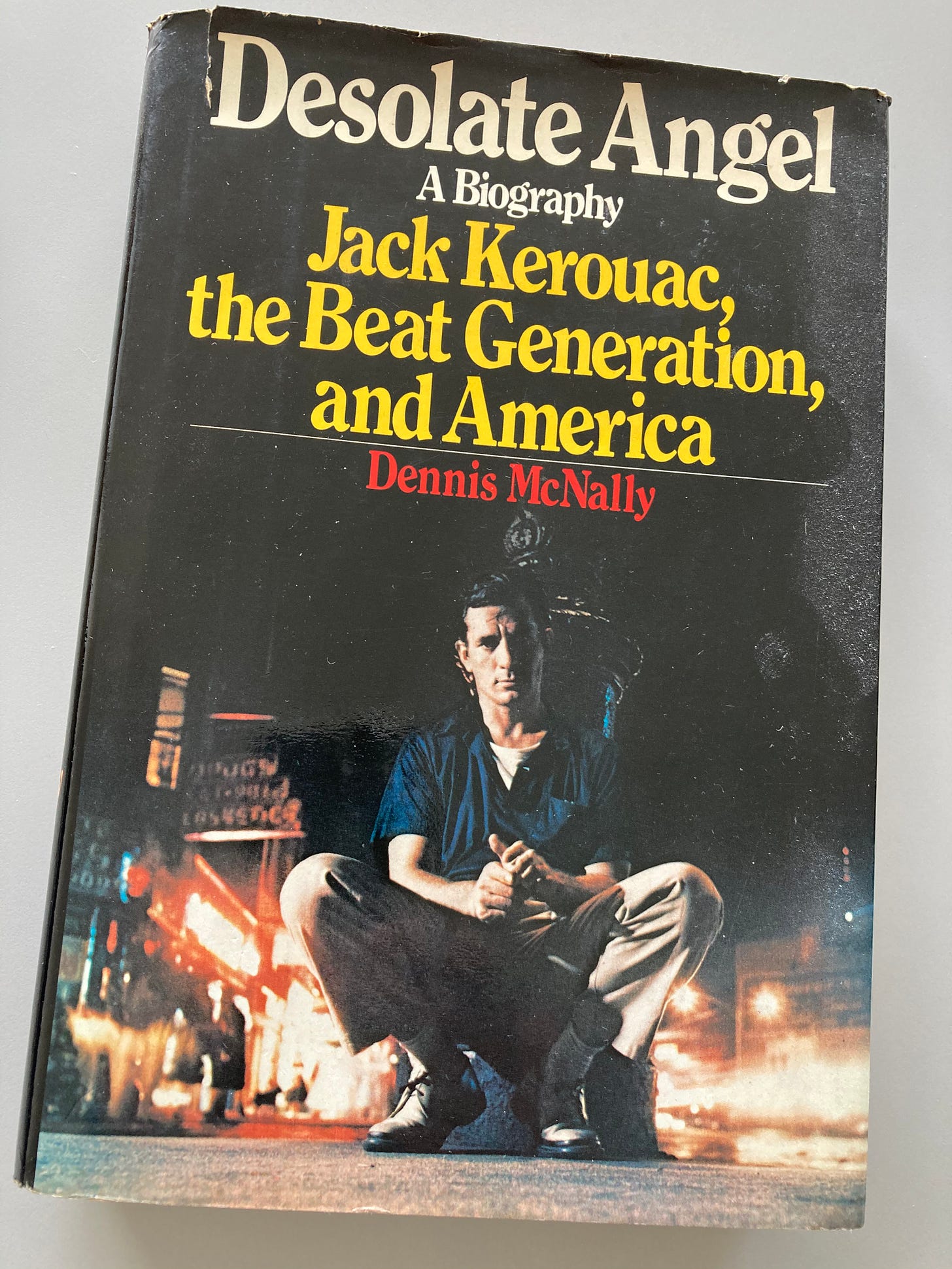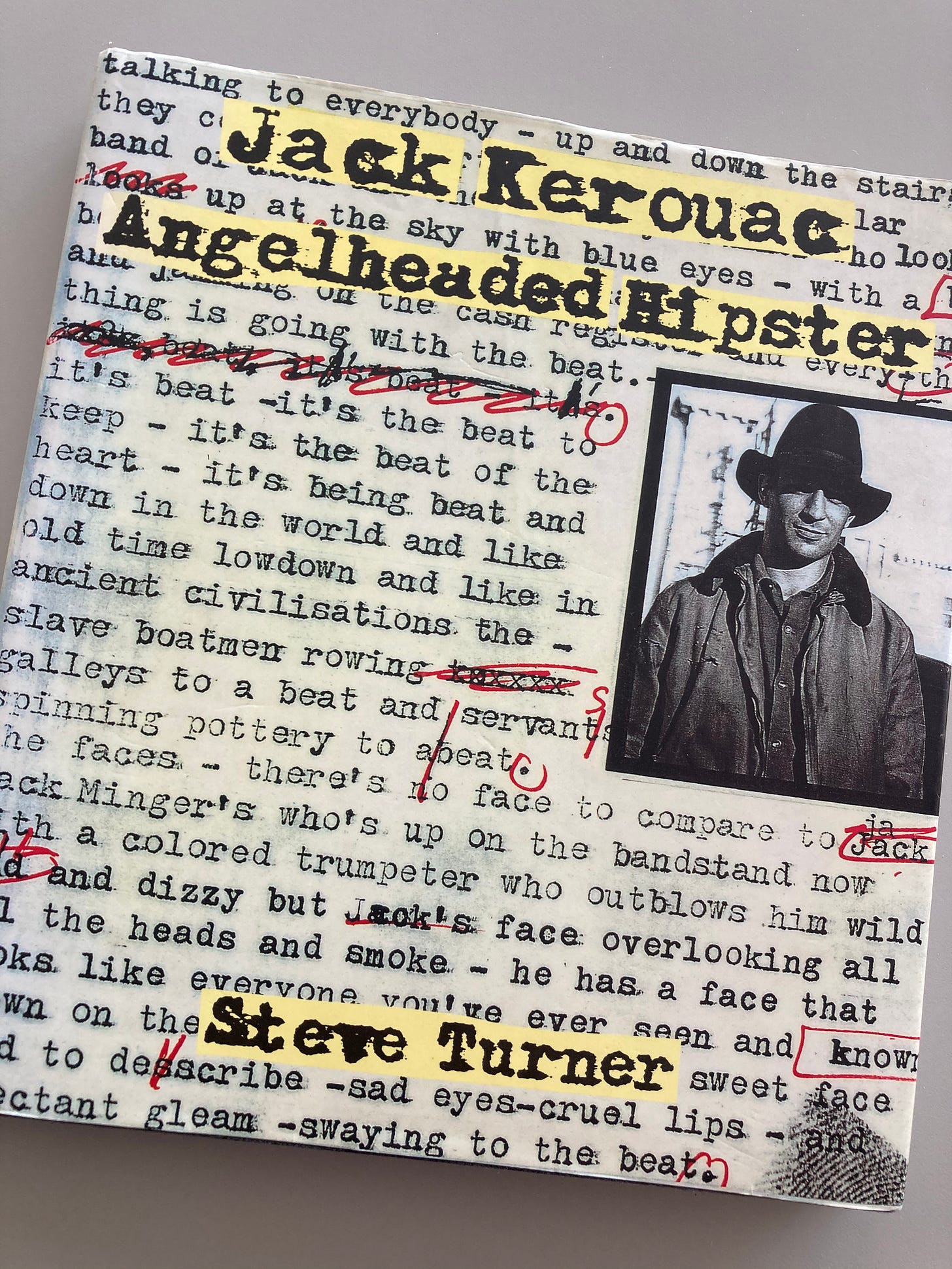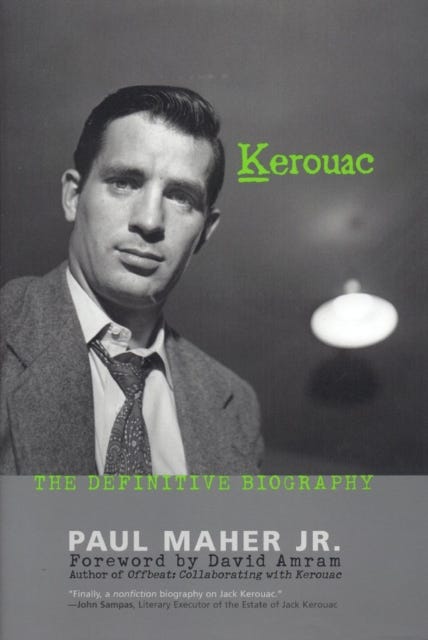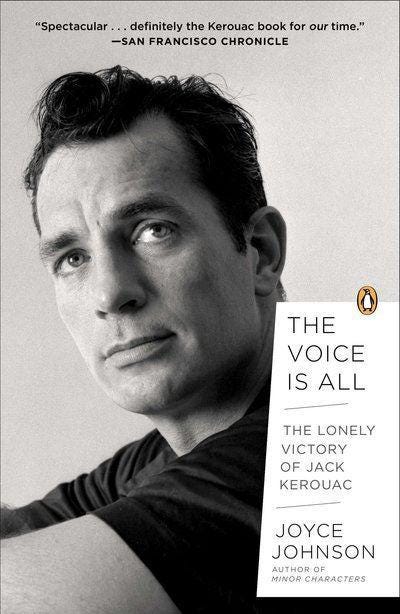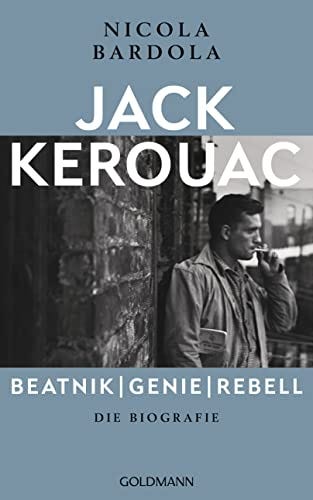Jack’s books: A forum of biographers
We asked leading writers who took on the Kerouac life story, including the first and the latest, to express some centenary thoughts and choose some suitable music to remember him by
JACK KEROUAC, we might argue, was his own biographer in fiction, feeding almost every moment of his 47 years into around 30 published novels plus multiple collections of short stories, poems, journals and letters. But there have been many others keen to take on this transitory and volatile, mystical and sometimes explosive, ecstatic and ultimately tragic, life story in their own way.
Respected US Beat scholar Ronna Johnson, Professor of English at Tufts University in Medford, MA, has been surveying this important aspect of the Kerouac narrative for decades, charting the serial versions of the man’s personal odyssey. She completed a detailed study of the biographical bibliography (excluding memoirs) as long ago as 2007, but she has now identified as many as 26 separate volumes. And there have been more since. Only last month, Nicola Bardola published the first such history of the author in German.
However in a well-populated category, there are some titles that have gained particular reputation over the last half-century. Below we ask some of those biographical voices – the first and the latest included – to share their own centenary thoughts and also, appropriately for Rock and the Beat Generation, to choose some music that they associate with the writer they have sought to portray in print…
ANN CHARTERS
Published in 1973, Kerouac: A Biography is regarded as the first full-length biographical account, penned by a writer who actually met him in the mid-1960s
‘I celebrate Kerouac’s centennial by thanking him for sharing his genius with us in his writing. I’m particularly grateful for his remarkable act of generosity to me in August 1966, when he invited me to his home in Hyannis, MA, to help me compile his bibliography. For his steadfast dedication to language & to the art of storytelling, we will never cease to love the open-hearted genius of Jack Kerouac.’
A musical selection: An album, Charlie Parker with Strings; song, 10,000 Maniacs, ‘Hey Jack Kerouac’
Note: Ann Charters’ ‘Beat Soundtrack’ was published in Rock and the Beat Generation on August 18th, 2021
DENNIS McNALLY
Debuting in 1979, Desolate Angel: Jack Kerouac, The Beat Generation and America placed the author in the wider context of shifting US history
‘As I see it, the most obvious significance of Jack Kerouac’s centenary is the importance attached to it and to him as a significant writer. When I began research on his life 50 years ago last month, his work was generally dismissed, with very little attention from the academy and many of his books out of print. That is certainly not the present case.
This is true at least in part for historical reasons. On the Road and its brother poem ‘Howl’, among many other things, pointed out that the emperor – American culture in the 1950s – was naked, which is to say empty and soulless, consumed with getting and spending.
America has always proudly proclaimed freedom as its central value, but there have always been two definitions available. One was freedom of thought, exemplified by Henry Thoreau. The other freedom is the ability to make as much money as imaginable. Kerouac stood with Thoreau for spiritual search, which is one major reason On the Road remains inspiring 65 years after publication – much of American culture remains repressive and anti-life. The emperor’s bottom is still quite bare.’
A musical selection: ‘The song that evokes Jack for me is “Night in Tunisia”, but “Lester Leaps In” might be more appropriate, just because Jack loved him so much (see Mexico City Blues, of course).’
STEVE TURNER
In 1996, the British music journalist and popular cultural historian issued his version of the author’s tale, Jack Kerouac: Angelheaded Hipster, an original blending of text and images. Turner was actually interviewed very recently, March 6th, 2022, in the pages of Rock and the Beat Generation
‘The anniversary doesn’t spark any particular feelings, because I’m always reading Beat material anyway. I have over 200 books either by or about the Beats and constantly dip into them. In 2018 I traced Kerouac’s route from Denver to San Francisco and visited places like Central City and Longmont where he stopped off. That was fun.
On that trip I found a lot of young people who didn’t know who Kerouac was. People who are a product of the Beat heritage need to have it pointed out to them which is what I think both you and I do in our work. When I was giving a talk about the Beatles at Pepperdine University in Malibu not too long ago a girl came up to me afterwards and said: “So now I know why I wear blue jeans”. And I took that as a real compliment.’
A musical selection: ‘I would like to name the album Kind of Blue by Miles Davis. It came out in 1959, two years after On the Road was published, but to me it epitomises the new jazz of that era and evokes the smoky clubs, cafes and bars that Kerouac liked so much. Kerouac loved Miles and of course mentions him in OTR but I gather that Miles was dismissive of the Beat Generation, believing that it appropriated African American culture. When I went to America to research Angelheaded Hipster in 1995 Kind of Blue was the CD I took with me to help keep me in the Beat zone, and Ann Charters’ just-released Collected Letters of Jack Kerouac 1940-1956 was the book I read. I met Herbert Huncke at the Chelsea Hotel in New York, read through Kerouac's notebooks at the New York Public Library, visited the Horace Mann School in the Bronx, and travelled up to Lowell where Roger Oulette and John Sampas showed me around at different times. If I had to pick one track from the album it would be the opener “So What”.’
PAUL MAHER, JR
Paul Maher, Jr is a prolific historian of Jack Kerouac and has written a number of books about the author. His first, Jack Kerouac: The Definitive Biography, was issued in 2004
‘I have no feeling for “time” or anniversaries .... the books themselves are timeless. Kerouac, however, was affected by time in that he didn't get to live much of it. Anniversaries are misguided affairs. It presents more of an opportunity for talking heads to display their wares to the marketplace. Music, on the other hand, fares better as anniversary items. We get, for example, the 50th anniversary of Let It Be recently and then we are blessed with all these gorgeous unreleased outtakes. Books, and in particular, Kerouac's books, fare far worse. We have yet to see a book devoted to On the Road and all of its incarnations leading up to it so as to better understand the evolution (and de-evolution) from the vast rolling prose to this stilted traditional book with all of the pseudonyms attached to it like stubborn barnacles.’
A musical selection: ‘One piece I do enjoy and is referenced directly in On the Road is Dexter Gordon & Wardell Gray's album, The Hunt, a live jazz concert from 1947. The Hunt represents the frenetic appearance of Dean Moriarty into the Christmas living room of Sal Paradise and his family in North Carolina. There is a hip liveliness to the music, evoking the very essence of Kerouac and this book.
In Kerouac's time, what was played would have been a 78-rpm record on the Bop! label. Gordon blows so gloriously unhinged, that it serves as a great precursor to the road journey they are about to undergo: “They ate voraciously as Dean, sandwich in hand, stood bowed and jumping before the big phonograph, listening to a wild bop record I had just bought called The Hunt, with Dexter Gordon and Wardell Gray blowing their tops before a screaming audience that gave the record fantastic frenzied volume.”’
Note: Paul Maher, Jr will appear in our ‘Beat Soundtrack’ feature in Rock and the Beat Generation soon
JOYCE JOHNSON
In 1957, when On the Road was published, Johnson was Kerouac’s girlfriend. During the decades that followed, she established herself as novelist and memoirist in her own right. In 2012, she published The Voice Is All: The Lonely Victory of Jack Kerouac, a biography of the writer as a young man
‘I once asked Jack why he wrote. He said it was because he wanted to have something to read in his old age. But he never got to have an old age; death was waiting for him right around the corner.
I will never forget my first sight of him in January 1957, sitting at the counter at the Howard Johnson’s on Sixth Avenue in the red and black flannel shirt he’d told me to look out for, more vibrantly present than anyone else I’d ever met in my twenty-one years. Also mysteriously distant and sad. The publication of On the Road was nine months away. I imagine Jack dreamed of fame the way he dreamed of all his destinations, including the solitude he always longed for – none of them ever measuring up to the way he’d imagined it.
I keep hoping he’ll come to be read less as a culture hero of the quaint 1950s and more as a great American Twentieth Century writer. The full understanding of Jack and his work has been too long blocked and delayed. But the road is finally open now to a new generation of biographers and scholars.
“Someday,” Jack once told me when he was consoling me about something, “you’ll be a little old lady with a window full of flowerpots.” And so I am.’
A musical selection: Billie Holiday, ‘I Cover the Waterfront’
NICOLA BARDOLA
Swiss by birth, Bardola has lived in Germany for 40 years. Last month, he released Jack Kerouac: Beatnik, Genie, Rebell, the first biography to be published in the language of his native land
‘Jack Kerouac is a worldwide phenomenon. He is particularly present in the English-speaking world – all the way to Australia and New Zealand. Since the mid-1970s, I have been following the active debate and reception in the English-speaking world with admiration. In the German-speaking countries, on the other hand, comparatively little has taken place.
The feuilleton* and the universities did not take Jack Kerouac very seriously. Not a single one of the many and good biographies about Jack Kerouac written by authors from the USA and Great Britain was translated into German. At each anniversary or jubilee of the last 40 years, I hoped for improvement. Now, on the occasion of the 100th anniversary, perhaps there will be some movement in this country in assessing Kerouac's work.
Most readers here learn for the first time, for example, that Kerouac dealt intensively with authors such as Johann Wolfgang von Goethe or Thomas Mann. Readers realise for the first time how thoroughly Kerouac dealt with language. In the German-speaking world, the cliché of the inebriated author who spends nights at the typewriter still prevails. What is new to many is how intensively he read other great authors and positioned himself between them depending on the work. Many don't know how seriously Jack Kerouac dealt with questions of style.
It is now gratifying to see the commitment of [Hamburg publishers] Rowohlt Verlag, which is devoting more attention to Kerouac's linguistic expression on the occasion of his 100th birthday. Rowohlt has engaged two excellent translators: Thomas Überhoff has newly translated The Dharma Bums. The novel now also has a new German title. It used to be called „Gammler, Zen und hohe Berge” (Bums, Zen and High Mountains) for decades. Now it is called „Die Dharmajäger” (The Dharma Chasers).
Here you can already see the difficulties of translating Kerouac. But Überhoff then succeeds brilliantly in translating Kerouac's prose into German. This also applies to his colleague Jan Schönherr: he is responsible for the very first German edition of Desolation Angels, which has just been published by Rowohlt. In German, the book is now called „Engel der Trübsal” (Angels of Misery).’
* a part of a newspaper or magazine, originally French, devoted to fiction, criticism or light literature
A musical selection: ‘My father was born in 1925. He loved jazz. I talk about that in my novel Slam. There's a Cab Calloway quote at the beginning: “It makes no difference where you go ...” from “Zaz, Zuh, Zaz”. I worship this Old-Jazz-Spirit. There's a lot in Kerouac’s books. So my personal Kerouac track is “Israel” written by Johnny Carisi (whom Jack knew personally) by Miles Davis. I think about Jack humming the tune to Enrique (in Mexico Fellaheen).’
Note: Rock and the Beat Generation will carry a longer interview with Nicola Bardola in respect of his new biography and Kerouac’s reception in Germany in the near future

